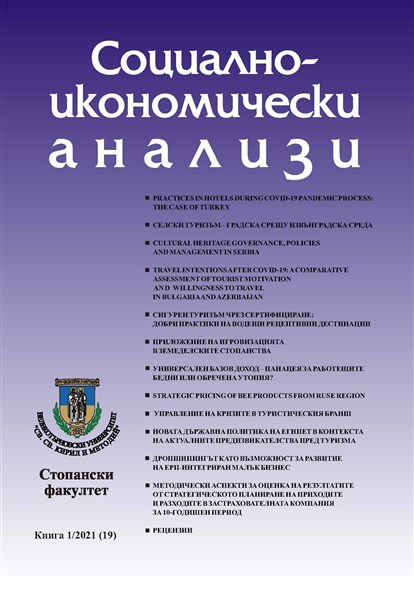Strategic Pricing of Bee Products From Ruse Region
Strategic Pricing of Bee Products From Ruse Region
Author(s): Lyubomir LyubenovSubject(s): Economy, National Economy, Agriculture, Socio-Economic Research
Published by: Великотърновски университет „Св. св. Кирил и Методий”
Keywords: pricing; costs; desired profit; demand; value
Summary/Abstract: The study reveals that in the context of global competition in supply, limited demand, and product parity in the B2B and B2C markets for bee products, there are significant limitations on the applicability of cost pricing methods (cost and desired profit) and partly on demand-based methods. In addition, the study shows that the most applicable pricing methods are the ones based on competition. Regional bee honey, as the main product of beekeeping in Ruse region, has a negligible differentiated value (monetary and psychological) in the B2B and B2C markets compared to its competing counterparts, due to which its price fluctuates around its market price. The lack of product differentiation, as well as established regional image and brand nowadays do not allow producers to achieve prices than are higher than the market prices. Beekeeping farms in Ruse region must implement horizontal and vertical strategic relationships to achieve price leadership through low costs and high quality. Value communication is necessary to protect the value and importance of regional bee products from hostile competitors. This must be done by improving the willingness of customers to pay a higher price for them. The pricing policy of beekeeping farms defines the general price behaviour based on the achieved differentiated value of the regional bee products and its continuous increase. The formation of regional bee products with high added value has a decisive role in the positive perception of the price by the different segments, due to which they achieve higher price levels.
Journal: Социално-икономически анализи
- Issue Year: 2021
- Issue No: 1
- Page Range: 76-85
- Page Count: 10
- Language: English

